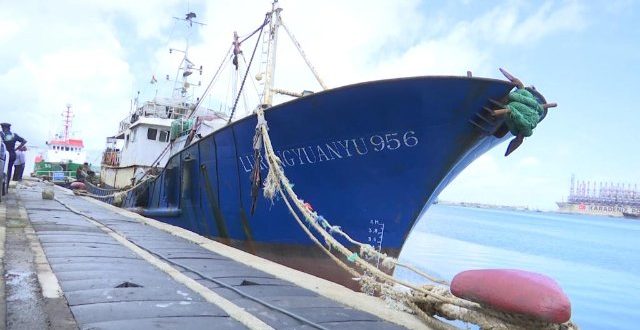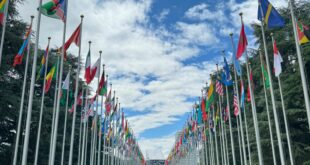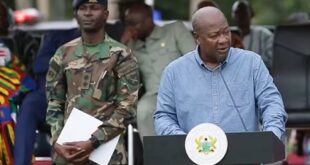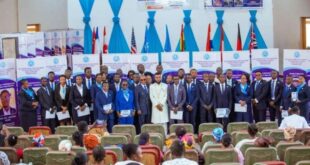The European Union delegation to Ghana has given the Fisheries Commission high marks for the fight against illegal, unreported and unregulated fishing practices.
On Sunday, the Fisheries Commission imposed a fine of US$ 1 Million on a vessel that had juvenile small pelagic on board during the May-June closed season.
According to the Ambassador of the EU delegation to Ghana, Diana Acconcia, such robust and transparent enforcement action is to be welcomed and should deter other operators from engaging in destructive forms of IUU fishing that threatens to undermine the good intentions of management measures such as closed seasons.
At a durbar organized in her honour by Far Dwuma Nkodo and far Banbo – EU funded projects, the EU Ambassador intimated, there was more work to be done if the country is to safeguard the ecological gains from this year’s closed season.
“By this, I am referring to the fight against IUU fishing practices. The IUU fishing is rife across all fishing sectors in Ghana, from the industrial through to the inshore and artisanal fleets. If we are to save Ghana’s fisheries, all fishers need to abandon their unsustainable and illegal practices, and adopt a more responsible path forward,” she cautioned.
Today the fisheries resources in West Africa, the EU Ambassador to Ghana says are under increasing pressure and there is growing evidence that illegal, unreported and unregulated fishing is a component of organized cross-border, money laundering, tax avoidance and even financing for terrorist activity in West Africa.
“This year saw the first-ever closed season for the artisanal and inshore fishing sectors and a closure for the industrial trawler fleet over the peak spawning season for small pelagic, when fish lay their eggs, contributing to rebuilding the fishery. I congratulate you all for your commitment towards sustainable fisheries,” she encouraged.
Diana Acconssia explains, “It is clear that action is required to save Ghana’s Coastal fisheries. Their collapse would have unimaginable implications for the fishing communities, with potential for widespread poverty, civil rife unrest and threats to national security.”
The EU, she avers is ready to support the Ghanaian government and fishing communities in the fight to end the highly damaging practice of saiko, and other forms of illegal fishing.
The Omanhen of Oguaa Traditional Area who chaired the durbar called on the government to intensify effort to tackle the illegal, unreported and unregulated fishing practices.
“There should be a bold and decisive action on it else we lose our valuable resources and many lives would be affected. The fisheries Commission should team up with the relevant stakeholders to fight the illegalities,” he told the gathering.
 Home Of Ghana News Ghana News, Entertainment And More
Home Of Ghana News Ghana News, Entertainment And More





